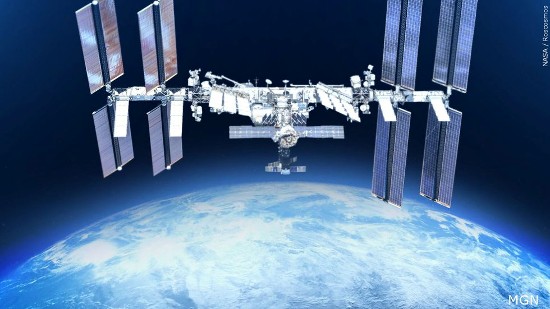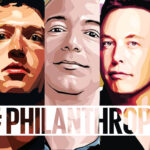Since the mid-1970s the rivalry that drove the Cold War has evolved into one of cooperation between the two most significant nations working in outer space. The Soviet Union and its successor, the Russian Federation, have worked with NASA and the European Space Agency (ESA) on a series of joint missions, and the construction and operation of the International Space Station (ISS).
In the last month, we learned that the planned end date for ISS was going to be sometime in January 2031. But over the last two days, the messaging from both NASA and Roscosmos has gone from continued cooperation to one fraught with Russian warnings of consequences for any escalation of sanctions that could affect that country’s space program.
Yesterday, Dmitry Rogozin, who heads up Russia’s space agency posted on Twitter a warning that sanctions imposed because of the war in Ukraine could lead to serious space implications. He turned the deorbiting of ISS in these new circumstances into some kind of weapon with these remarks.
“If you block cooperation with us, who will save the ISS from an uncontrolled deorbit and fall into the United States or Europe? There is also the option of dropping a 500-ton structure to India and China. Do you want to threaten them with such a prospect?”
In response to the Russian invasion of Ukraine, the United States announced that economic sanctions imposed would degrade Roscosmos ability to support its space ambitions from launch vehicles to cooperation on the development of new science and human flight missions. The European Union and its space agency, ESA, is likely to go along with US export control measures, and although NASA stated that they didn’t expect civil space cooperation to be impacted by the events in Ukraine, the leader of Roscosmos pointedly made a threat with his statement about dropping the ISS on countries currently imposing sanctions on Russia.
He stated that the ISS doesn’t fly over Russia’s landmass so if deorbited it poses no threat. But it does fly over the US, Europe, China, and India. It is not a friendly statement to make when the Roscosmos leader states, “So all the risks are yours. Are you ready for them?” He continues this line of reasoning regarding countries that could be on the receiving end of a 500-ton object coming down upon them stating, “do you want to threaten them with such a prospect?”
For ESA, the upcoming ExoMars mission, the deployment of the Rosalind Franklin rover on the surface of the Red Planet, expected to launch between September 20th and October 1st this year, could be jeopardized. It was to be launched on a Russian rocket from the Baikonur Cosmodrome. The cooperation with Russian scientists and those at ESA has been extensive. But will science transcend geopolitics and war?
Arianespace may also be impacted since it has been using Russia’s Soyuz vehicle for some of its missions launched out of French Guiana. Arianespace has been working on joint ventures with Roscosmos to develop new launchers and satellites.
All of the cooperation gained in the ending of the Cold War may vanish within a short time with human exploration of outer space an early victim. Instead, the fallout with NASA and ESA may see Roscosmos move to closer cooperation with China’s space agency. Since 2017 the Russians and China have had an agreement to develop joint space-based projects. China’s muted response to the invasion of Ukraine with news announcers describing Russia’s “legitimate” concerns about NATO expansion as justification for Russia’s acts, suggests we are coming to the end of what was once a very promising joint effort in outer space. But Rogozin’s remarks threatening an uncontrolled deorbit of the ISS are unconscionable.















